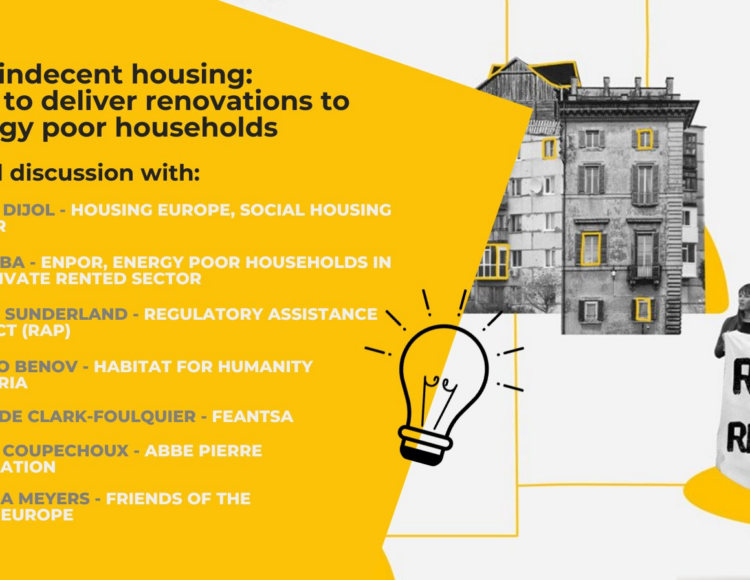“Public, cooperative, and social housing providers have a unique way of delivering a fair energy transition based on a systemic, district and social approach which can be an inspiration for the private sector,” Housing Europe’s Policy Director, Julien Dijol said at the highly-attended Right to Energy Forum on 25th January.
In the session ‘End indecent housing: how to deliver renovations to energy-poor households’, he gave the example of the Basque country where social housing providers work with private homeowners to help them find the right technical and financial solution for renovation of their building with the help of one-stop-shops run by our EU-funded project, Opengela. Residents and tenants’ user behaviour is crucial and this is why Housing Europe has engaged in POWERPOOR, a key project where we train Energy Supporters and Mentors to support those impacted by energy poverty, he further added.
For the first time, Julien Dijol also explained what a ‘whatever it takes’ plan for a fair energy transition that makes green citizenship a reality would stand for. Firstly, that would be a Fit for 55 package that takes into account the local circumstances and resources leading to an acceptable energy transition, making an effort to contextualise the work and to really work with residents. Secondly, our sector called on the European Commission to promote the district approach renovation of public, cooperative, and social housing in co-decision with residents. A great example of that is the Affordable Housing Initiative which Housing Europe strongly supports. Thirdly, we believe that the European Commission must promote innovative ways to procure for renovation or new construction taking into account circular principles. And finally, ‘whatever it takes’ means financial means to achieve ambitious goals. Revenues generated by the EU Emissions Trading System must be invested in climate mitigation and adaptation strategies, particularly to avoid that the lowest income group would be left behind.
